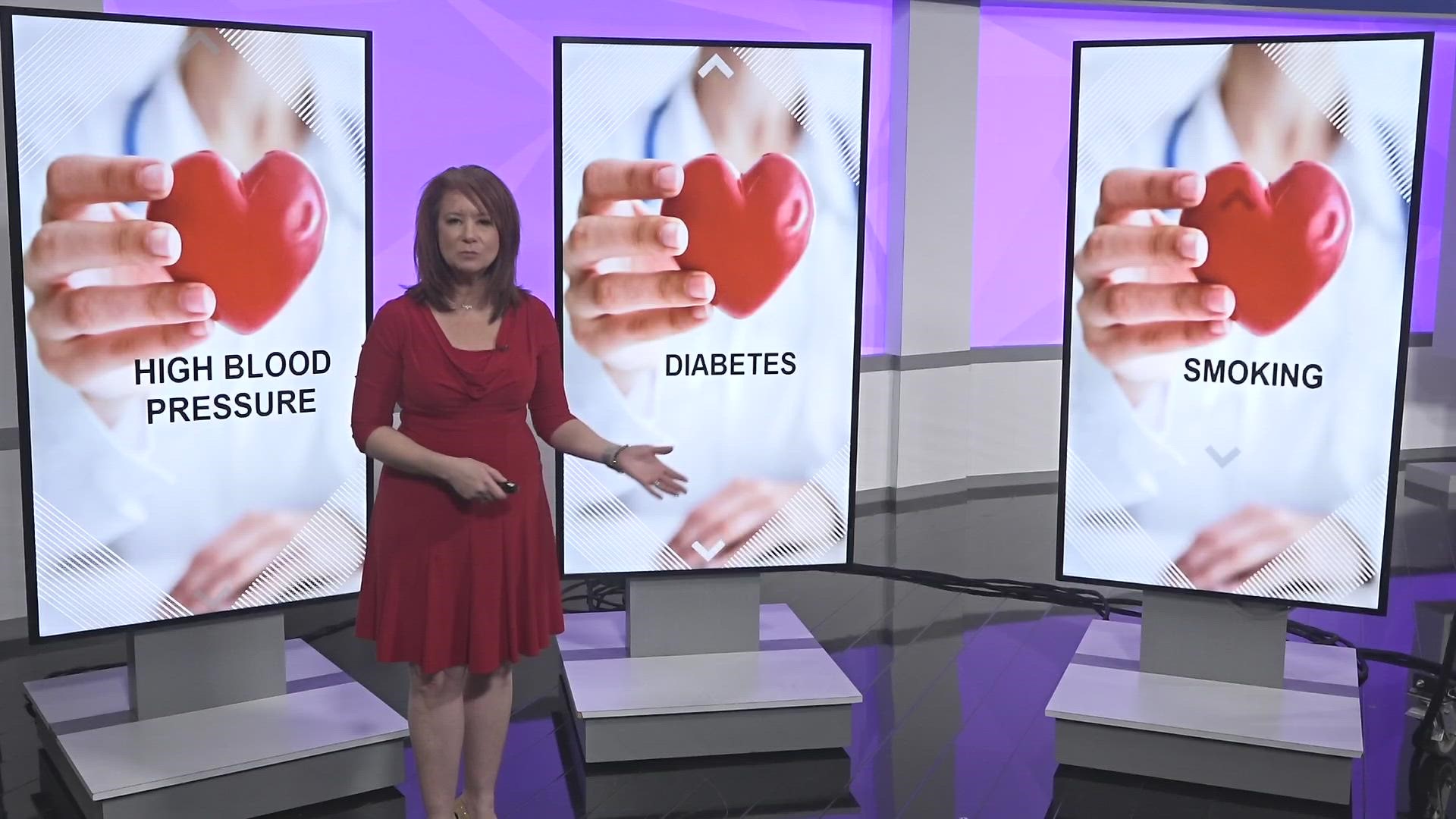GREENSBORO, N.C. — You know the usual suspects when it comes to heart disease risk factors for women: High blood pressure, diabetes, and smoking. But now there are new risk factors that include a woman's health when she was pregnant.
“Non-traditional factors we look at especially for women of childbearing years who have conceived and had the baby, things like hypertension or diabetes during pregnancy, and it goes away or you have a baby that is small birth weight. All of those have been connected to heart disease in women,” said Dr. Kardie Tobb, Cone Health Medical Group, Heartcare.
These new risk factors join a list of other new risk factors that again, only pertain to women.
“Women who have endocrinology that has a dysfunction called Polycystic Ovary Syndrome or PCOS also increases that risk as well as women who have had menopause either prematurely or naturally,” said Tobb.
If any of these risk factors pertain to you, you need to make sure you are talking to your doctor about them, just so everyone is aware of how best to take care of you.
Heart disease is the number one killer of women, with someone dying every other minute.
Often times women will have different symptoms compared to men. These are what you should be watching for:
- Shortness of breath
- Nausea
- Fatigue
- Decreased exercise capacity
- Chest pain/discomfort
- Low back pain
The CDC offers the following tips to take control of your heart health:
- Manage your weight. Being overweight or obese increases your risk for heart disease.
- Exercise Regularly. Physical activity can help you maintain a healthy weight and lower your blood pressure, cholesterol, and sugar levels.
- Do not smoke. Cigarette smoking greatly increases your risk for heart disease. If you don't smoke, don't start. If you do smoke, quitting will lower your risk for heart disease. Your doctor can suggest ways to help you quit.
- Limit your alcohol consumption. Avoid drinking too much alcohol, which can raise your blood pressure. Men should have no more than 2 drinks per day, and women only 1.

